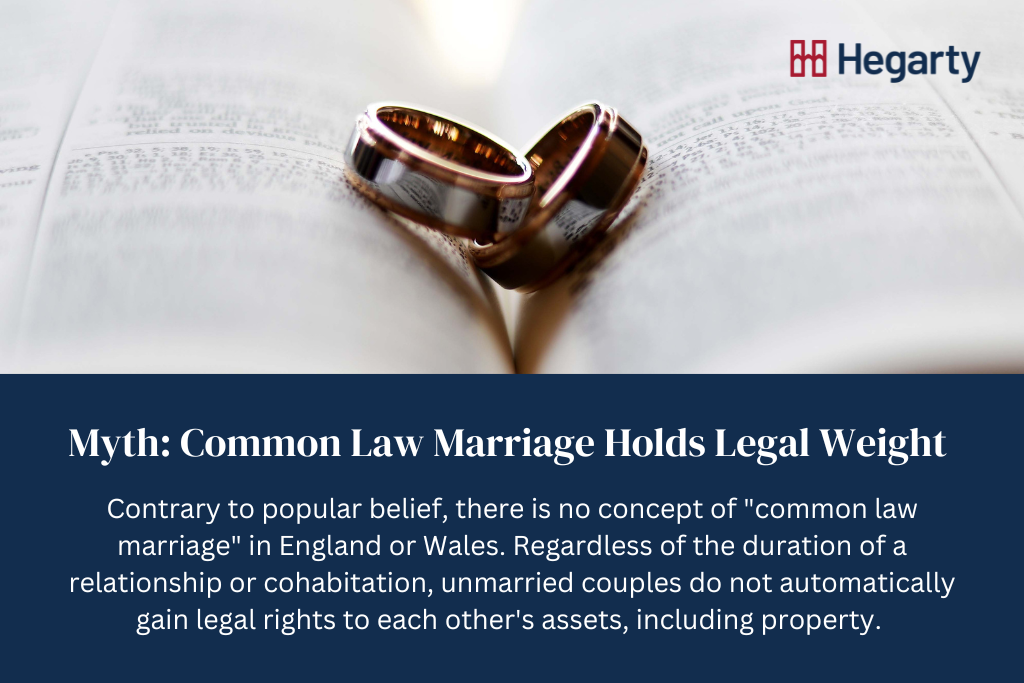27 Mar 2024
Peterborough office
48 Broadway, Peterborough Cambridgeshire, PE1 1YW
01733 346 333 01733 562 338 enquiries@hegarty.co.ukStamford office
10 Ironmonger Street, Stamford Lincolnshire, PE9 1PL
01780 752 066 01780 762 774 enquiries@hegarty.co.ukOakham office
66 South Street, Oakham Rutland, LE15 6BQ
01572 757 565 01572 720 555 enquiries@hegarty.co.ukMarket Deeping office
27a Market Place, Market Deeping, PE6 8EA
01778 230 120 01778 230 129 enquiries@hegarty.co.uk27 Mar 2024
So, the time has finally arrived. You and your partner are head over heels in love and your heart is telling you to spend every possible moment with your significant other. You want to ask your partner the big question that will take your relationship to the next level - “Will you move in with me”. But there is a little voice in your head telling you to be ultra-cautious. Don’t ignore this voice, it has something important to say.
As the intricacies of shared living and joint ownership become more prevalent, understanding the legal landscape is crucial before rushing off to buy couples pillow sets. In recent years we’ve seen the total number of cohabiting couples increase from around 1.5 million in 1996 to around 3.6 million in 2021, an increase of 144%, indicating that more couples are delaying or avoiding getting legally married. Moving into your partner’s home is a significant step that shouldn’t be taken lightly. At Hegarty, we understand the complications that come with it, especially when one partner owns the property. Let's explore the rights and considerations that should be at the forefront of your journey.

In the context of homeownership, sole ownership means that one partner holds legal ownership of the property. This sets the stage for distinct rights and responsibilities, akin to a business owner having complete control over their enterprise.
In the absence of a cohabitation agreement when you first move in with your partner, your rights may be limited. To secure a share in the property, contributing to the mortgage, home improvements, or establishing a shared intention becomes crucial.
Consider a scenario where one partner owns the house you live in, raising questions about your rights. The default legal position is that you will have no right to a share of the property unless you can prove that you have ‘acquired an interest’ in the property, often by contributing to the mortgage or home improvements or by showing that there was a shared intention that you would have a share and you have relied on it to your disadvantage. The only way you would be entitled to a share of the home is if your name is on the title deeds or you can prove that you have acquired an interest in the property.
You will also normally have no right to stay in the home long-term, unless you have a tenancy agreement or ‘licence to occupy’ granted by your partner. This can make your living situation very precarious if you were to separate.
For these reasons, you should consider a cohabitation agreement when living in a property solely owned by your partner.
A cohabitation agreement is a legally binding contract that outlines the terms and conditions of living together as a couple. It serves as a proactive measure to address various aspects of the relationship, including financial matters, property ownership, and potential separation.
Property Rights:
Financial Arrangements:
Child Arrangements and Support:
Separation Guidelines:

Myth: Common Law Marriage Holds Legal Weight
Reality: Contrary to popular belief, there is no concept of "common law marriage" in England or Wales. Regardless of the duration of a relationship or cohabitation, unmarried couples do not automatically gain legal rights to each other's assets, including property.
Myth: Entitlement to Half the House Without Marriage
Reality: If you're not married, you don't automatically have a legal right to your partner's property or assets, regardless of the relationship's duration. The absence of a marriage certificate means that you won't inherit half of your partner's property. Legal mechanisms, such as adding your name to the property or a cohabitation agreement, are essential to secure your interests.
Myth: Immediate Eviction Upon Separation
Reality: Sole ownership doesn't grant an immediate right to evict a partner upon separation. Legal processes are in place to determine the rights of both parties. Seeking immediate legal advice is crucial if you're concerned about your living situation post-separation.
Myth: Marriage Changes Ownership Dynamics Automatically
Reality: While marriage alters legal dynamics, it doesn't automatically change property ownership. A prenuptial agreement is necessary for specifying property shares in case of divorce. Planning to marry and considering joint ownership should involve legal consultation to ensure clarity and protection.
Myth: Cohabitation Agreements Are Unnecessary
Reality: Cohabitation agreements are vital tools for establishing expectations and conditions during shared living. This legal document can outline financial contributions, property shares, and circumstances for one partner to be asked to move out. It serves as a preventive measure against disputes.

Separation brings its own set of challenges. Immediate eviction isn't automatic, and avenues may exist to claim a share of the property's value. Your rights are likely to be very limited. However, depending on the situation, things are not necessarily hopeless.
Your partner cannot immediately “kick you out” when you break up just because they are the sole owner of the property. It may also be possible for you to claim a share of the value of the property even though your name is not on the title. To claim an interest in a property, you would need to show that there was a common understanding with the owner that you should have a financial interest in the property e.g. by:
The process of adding your name typically involves a "transfer of equity." This legal procedure allows for a change in the ownership structure of the property. It's imperative to update the title deeds with the land registry and obtain the lender's consent if there's an existing mortgage.
Joint Tenancy vs. Tenants in Common
When adding your name, you'll encounter the choice between 'joint tenants' and 'tenants in common.' This decision holds significance not only in case of death but also in the event of a separation.
Understanding these terms is crucial before making the final decision:
Read more about the difference between joint tenants vs tenants in common.
Deed of Trust
If opting for 'tenants in common,' consider creating a 'deed of trust' or 'declaration of trust.' This document explicitly outlines each partner's share in the property. It's a legally binding agreement that safeguards your interests in the event of a separation.
Documentation and Land Registry
Ensure all necessary documentation is completed accurately. The land registry must be informed of the change in ownership. Your legal advisor will assist in preparing and submitting the required paperwork to formalise the transfer.
Consent from Lender
If there's an existing mortgage on the property, obtaining consent from the lender is crucial. Your legal advisor will facilitate communication with the lender to secure their approval for the change in ownership.
Embarking on the journey of living together is an exciting step, but it comes with important considerations to ensure a smooth transition. At Hegarty, we offer valuable insights into what you should prepare before moving in with your partner.
1. Open Communication
Before moving in together, engage in open and honest communication about:
2. Understanding Legal Implications
Clarify the legal aspects of property ownership:
3. Cohabitation Agreement
Consider a cohabitation agreement that outlines:
4. Legal Advice
Seek legal advice to address property rights:
Moving in with your partner is a significant step that requires thoughtful preparation. At Hegarty, we specialise in providing legal guidance to ensure that your cohabitation journey is well-prepared and legally secure.
Contact us today to speak to a member of our family law or property team for expert advice on the legal considerations concerning home ownership and cohabitation.
Whatever legal support you need, our experienced and highly skilled solicitors and legal advisors are here to help. With expertise across a wide range of legal areas, we provide clear, practical advice tailored to you. What sets us apart is our commitment to understanding your needs and delivering the best possible outcome with a personal touch.